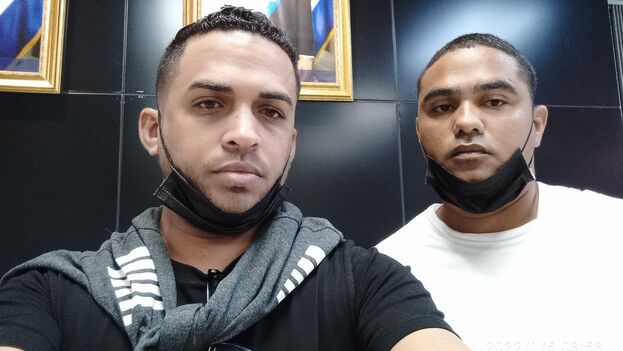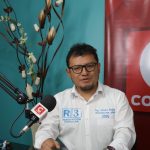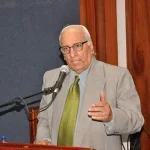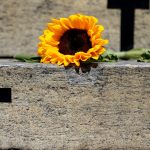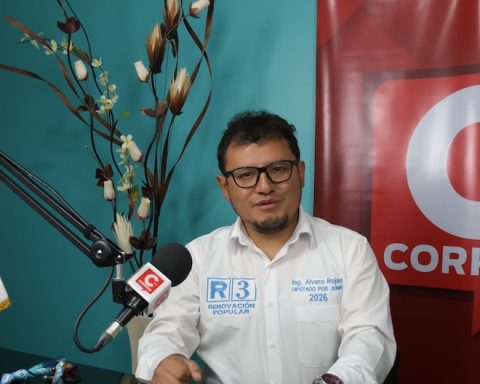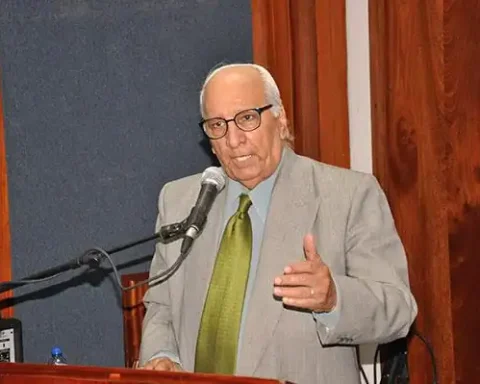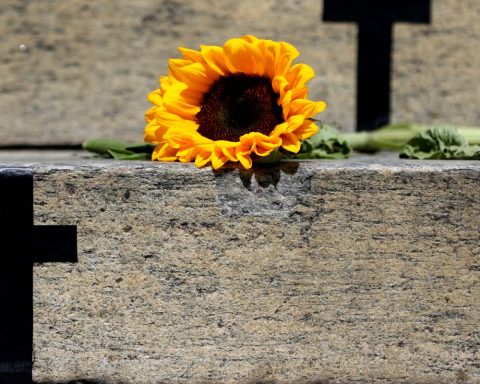Cuban journalists Héctor Valdés and Esteban Rodríguez are stranded in El Salvador after the Daniel Ortega regime denied them entry to Nicaragua. Both denounced their exile from the island due to the repression of the Cuban regime. Rodríguez was released on January 4, after eight months in prison for peacefully demonstrating.
Rodríguez was arrested on April 30 on the island when he tried to approach, by way of solidarity, the house of the artist Luis Manuel Otero Alcántara, who was on a hunger strike. Valdés was later arrested, in October, when he was on his way to the El Combinado prison to visit Rodríguez.
According to Valdés’ account, the trip to Nicaragua would last only about two days and they would use the country as a bridge to advance towards the United States where they would request political asylum due to the persecution that the people are experiencing. independent journalists in Cuba.
“It turns out that, when we left (…) we traveled through Copa, towards Panama, the first stop where we were. There was no problem whatsoever. (…) From Panama we took a flight to San Salvador and there were no problems whatsoever. Exactly at 9:30 at night, when the flight that had to transfer us to Nicaragua arrives, they call us over the loudspeakers and tell us that Estaban and I had been denied entry to Nicaragua. The Nicaraguan regime denied me and Esteban entry into the country, ”continues Valdés’s account in a video posted on Facebook.
The journalists have been in El Salvador, as they explained, since Tuesday night when the flight left without them and they also lost the money from the tickets they had bought from the airline.
Valdés complained that they cannot enter Nicaragua and they cannot return to Cuba because they are going to “be sanctioned” by the Cuban regime, which also warned Rodríguez that he could not return to the island and would accuse Valdés for being “Accessory to the escape of a criminal” in reference to Rodríguez, despite the fact that the same regime took him to the airport to expel him from the island.
“We are in a migratory limbo, inside an international airport, as is the case of the San Salvador airport. We have gone to the immigration authorities, they do not give us explanations, they do not even give us an answer. We have tried to request political asylum within San Salvador, they don’t give us an answer either, ”Valdés said tearfully, adding that they had not eaten for 24 hours, until the video was published, because they ran out of money.
“I couldn’t see my daughters”
In his account, Rodríguez says that when he was expelled from Cuba, he was unable to see his daughters or the rest of his family. Crying, he recounted: “I left and left my family behind, but I left because I had no choice,” as he recalled that he lived through “hell” while he was imprisoned for eight months in the prisons of the Cuban dictatorship.
Among the torture he denounced are the psychological ones, he said that “they put you in a hole for more than 72 hours handcuffed with your hands and feet,” those same handcuffs gave him sores that he showed on camera.
“How they play with people’s lives by sanctioning them to 20 and 30 years as if that were nothing. How they mistreat you in there, how they make demonstrations against you there, the same prisoners are sent to tell you slogans against you every day.
Condemnation to forced exile
Reporters Without Borders, as well as Humans Right Watch and the Office of the United Nations High Commissioner, issued statements on the situation of the two journalists. Reporters Without Borders, condemned the forced exile and urged El Salvador to grant them political asylum.
#Cuba #Alert: Cuba deport journalists @ HectorValdes_91 and Esteban Rodríguez. Nicaragua rejects their entry. They are stranded at the airport in El Salvador.@RSF_esp Urges his asylum and condemns the forced exile applied by the Cuba system https://t.co/ZAIGuMRRGi
– RSF in Spanish (@RSF_esp) January 5, 2022
For his part, José Miguel Vivanco, executive director for the Americas Division of Humans Right Watch, called on the governments of the Central American region to offer asylum to journalists.
We call on the governments of the region to offer asylum to journalists Esteban Rodríguez and Héctor Luis Valdés, who have been persecuted by the regime and expelled from Cuba: https://t.co/UGTw1uoEdo
– José Miguel Vivanco (@JMVivancoHRW) January 5, 2022
The special rapporteur for freedom of expression of the Inter-American Commission on Human Rights, Pedro Vaca, also called on the countries that make up the Media Freedom Coalition to consider granting asylum to journalists.
Among the countries that make up that list are the United States, Canada, United Kingdom, Chile and Costa Rica.
I call on the states that make up the Media Freedom Coalition to consider granting asylum to Cuban journalists @ HectorValdes_91 and Esteban Rodríguez who were expelled from the island for doing their job.https://t.co/VWa8gsct9p
– Pedro Vaca V. (@PVacaV) January 5, 2022
